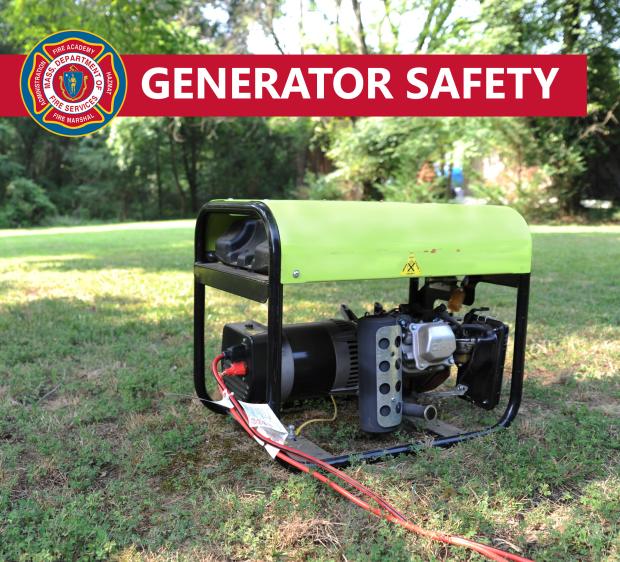Generators can be helpful when the power goes out for an extended period of time. It is important to know how use them safely to prevent fires, carbon monoxide (CO) poisoning and electrocution.
Purchasing and preparing to use a generator
- Purchase devices that are listed by a nationally recognized testing laboratory such as Underwriters Laboratories (UL). Look for the lab's mark before you buy.
- Have a licensed electrician install a transfer switch. Connecting a generator directly to your home's electrical system without a properly installed transfer switch creates a risk of electrocution for utility workers.
- Read and follow the manufacturer’s instructions before you need to use the generator.
- Install working CO alarms on every level of the home.
Additional Resources
-
Open PDF file, 154.54 KB, Generator Safety (English, PDF 154.54 KB)
Using a generator safely
- Place the generator outdoors facing away from doors, windows and vents. Never use a generator inside a house, basement or crawl space – not even inside a garage with the door open. Place the generator at least 10 feet away from the house.
- Plug appliances directly into the generator or use heavy-duty, outdoor-rated extension cords, not to exceed the number of outlets on the generator. Make sure cords are free of damage and have all three prongs – especially the grounding pin.
- Keep the generator dry. Operate on a dry surface under an open canopy or tent if necessary.
- Dry your hands before touching the generator.
- Let the generator cool before refueling. Fuel spilled on hot engine parts can ignite.
Store and transport gasoline safely
- Transport gasoline standing upright, in an approved container in the trunk of your car or back of a pick-up truck. You can transport a maximum of 21 gallons without a permit from the fire department, provided no single container exceeds 7 gallons.
- Store gasoline in a shed or detached garage away from the house. Never store gasoline inside a home or an attached garage. Secure the shed or garage if possible, and keep flammable liquids out of reach of youngsters.
- Store gasoline far from any fuel burning appliance such as a furnace, water heater or woodstove. Vapors can travel back to their ignition source and ignite.
